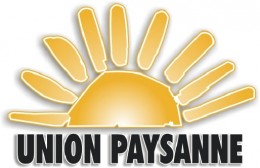Food Secure Canada on Nutrition North & Supply Management 2.0
Posted: February 24, 2015
Categories: Food in the News
Food Secure Canada‘s (FSC) February newsletter, Bits and Bytes, discusses topics ranging from the upcoming federal election to FSC’s 2016 National Assembly; from the New Farmer Survey to Bill C-18 or the Agricultural Growth Act; and from Nutrition North to Supply Management 2.0 in Canada.
Nutrition North Canada
 FSC writes that Nutrition North Canada (NNC) has fallen short of successfully addressing the high costs of food in Northern Canada. As stated in FSC’s newsletter, “Aboriginal Affairs and Northern Development Canada had failed to identify eligible communities on the basis of real need; there were blatant inconsistencies in the eligibility statuses of subsidized communities; the Department had never verified whether northern retailers had even passed on the subsidy to consumers; and the compliance and profit margins of subsidized retailers were not once put in check.”
FSC writes that Nutrition North Canada (NNC) has fallen short of successfully addressing the high costs of food in Northern Canada. As stated in FSC’s newsletter, “Aboriginal Affairs and Northern Development Canada had failed to identify eligible communities on the basis of real need; there were blatant inconsistencies in the eligibility statuses of subsidized communities; the Department had never verified whether northern retailers had even passed on the subsidy to consumers; and the compliance and profit margins of subsidized retailers were not once put in check.”
As NNC has failed to alleviate food insecurity in the North, other initiatives are gaining force, such as Feeding My Family. FSC suggested some directions for addressing the shortcomings of NNC in the 2013 Alternative Federal Budget (in the chapter on food sovereignty). Former FSC Board Member Norma Kassi also put the question to politicians at the 2014 National Assembly in Halifax, which you can watch here.
Supply Management 2.0
 Union Paysanne, a Quebec group focused on promoting food sovereignty and supporting rural populations, recently published a discussion paper on challenges and opportunities related to supply management in Canada. Union Paysanne notes the most common arguments against supply management as being the prohibitive cost of quotas, the lack of room for new farmers, and constraints to trade.
Union Paysanne, a Quebec group focused on promoting food sovereignty and supporting rural populations, recently published a discussion paper on challenges and opportunities related to supply management in Canada. Union Paysanne notes the most common arguments against supply management as being the prohibitive cost of quotas, the lack of room for new farmers, and constraints to trade.
Farmers can purchase quota (aka guaranties of a market share), but now the rising expense of purchasing quota is discouraging the next generation of farmers, particularly those interested in raising animals that require quota (e.g., dairy, laying hens, turkey, etc.). Union Paysanne has proposed 6 recommendations to achieve a more inclusive and diverse supply management system. The document, titled ‘Toward Supply Management 2.0 in Canada” is available online.
All FSC newsletters are available on their website.
